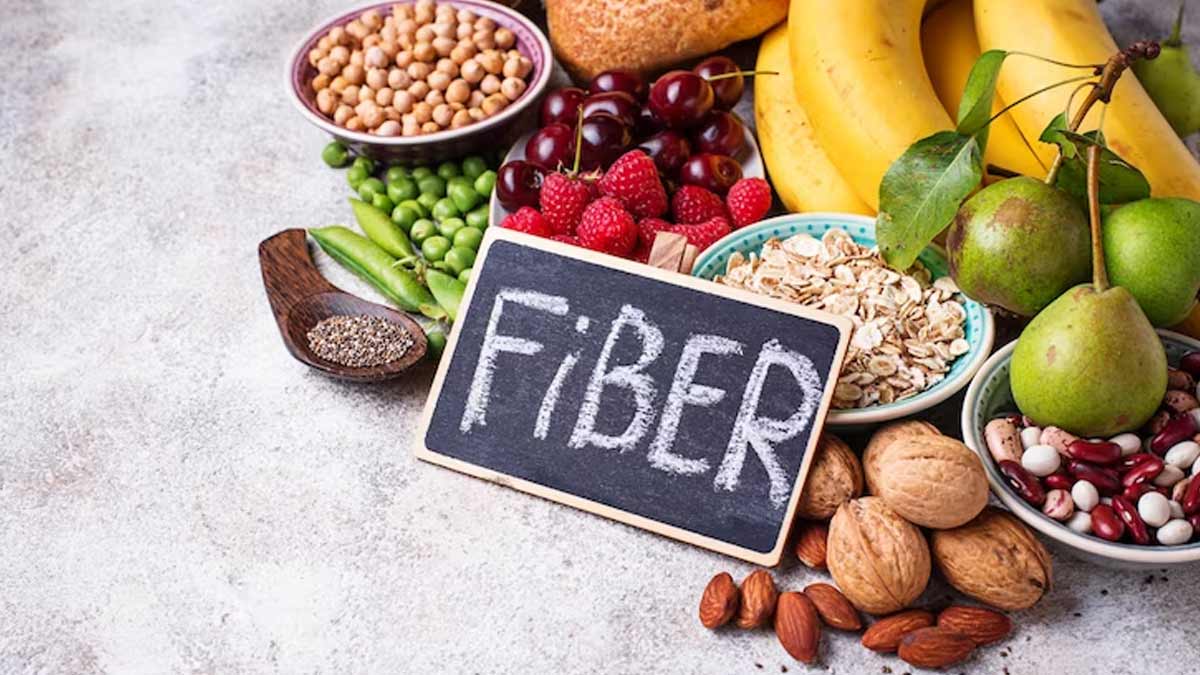
Fibre plays an important role in maintaining digestive health and supporting overall health. However, like any good thing, too much of it can lead to unexpected consequences. While fibre is essential for regular bowel movements and a healthy gut, excessive consumption can sometimes lead to discomfort and unwanted symptoms.
Table of Content:-
As per American Journal of Clinical Nutrition, soluble fibre is related with minor but significant reductions in total cholesterol.
About Fibre Intake
Fibre aids in preventing constipation, regulating blood sugar levels, and supporting weight management. It promotes a feeling of fullness and helps maintain a healthy gut microbiome. However, it's important to remember that like any nutrient, moderation is key.

The Telltale Signs of Fibre Overload
Gastrointestinal Discomfort
According to Prachi Jain, Chief Clinical Nutritionist and HOD-Nutrition and Dietetics, CK Birla Hospital, Gurugram, excessive fibre can lead to bloating, gas, and abdominal cramps. These symptoms often arise when the gut bacteria ferment undigested fibre, producing gas as a byproduct.
Also read: 6 Seeds Rich In Fibre, Vitamins, & Protein For A Healthy Body
Constipation or Diarrhoea
While fibre generally helps prevent constipation, too much of it can actually lead to either extreme – constipation or diarrhoea. Finding the right balance is crucial for regular, healthy bowel movements.
Nutrient Absorption Interference: High fibre intake can interfere with the absorption of certain minerals like zinc, iron, calcium, and magnesium. This can potentially lead to deficiencies over time.

Adjusting Your Fibre Intake
a. Gradual Increase: If you're looking to increase your fibre intake, do so gradually. This allows your digestive system to adapt and reduces the likelihood of discomfort.
b. Hydration Matters: Fibre absorbs water, so be sure to drink plenty of fluids to keep things moving smoothly.
c. Fiber Variety: Aim for a diverse range of fibre sources, including whole grains, fruits, vegetables, legumes, and nuts.
Balancing Act for Optimal Health
Finding the right balance between fibre intake and your body's needs is the key to enjoying its benefits without the discomfort. Pay attention to your body's signals and adjust your diet accordingly. Remember, individual tolerance to fibre can vary, so what works for one person might not work for another.
Also read: 4 Fibre-rich Foods That Can Be Included In Dinner
Bottomline
Fibre supports digestive health, aids in weight management, and offers a host of benefits. However, like all good things in life, moderation is essential.
Keeping a keen eye out for the signs and symptoms of excessive fibre intake empowers you to strike the perfect balance between reaping its rewards and avoiding unwanted discomfort. By being attuned to your body's signals and making thoughtful dietary choices, you can embark on a journey of digestive harmony and long-lasting vitality.
Also watch this video
How we keep this article up to date:
We work with experts and keep a close eye on the latest in health and wellness. Whenever there is a new research or helpful information, we update our articles with accurate and useful advice.
Current Version